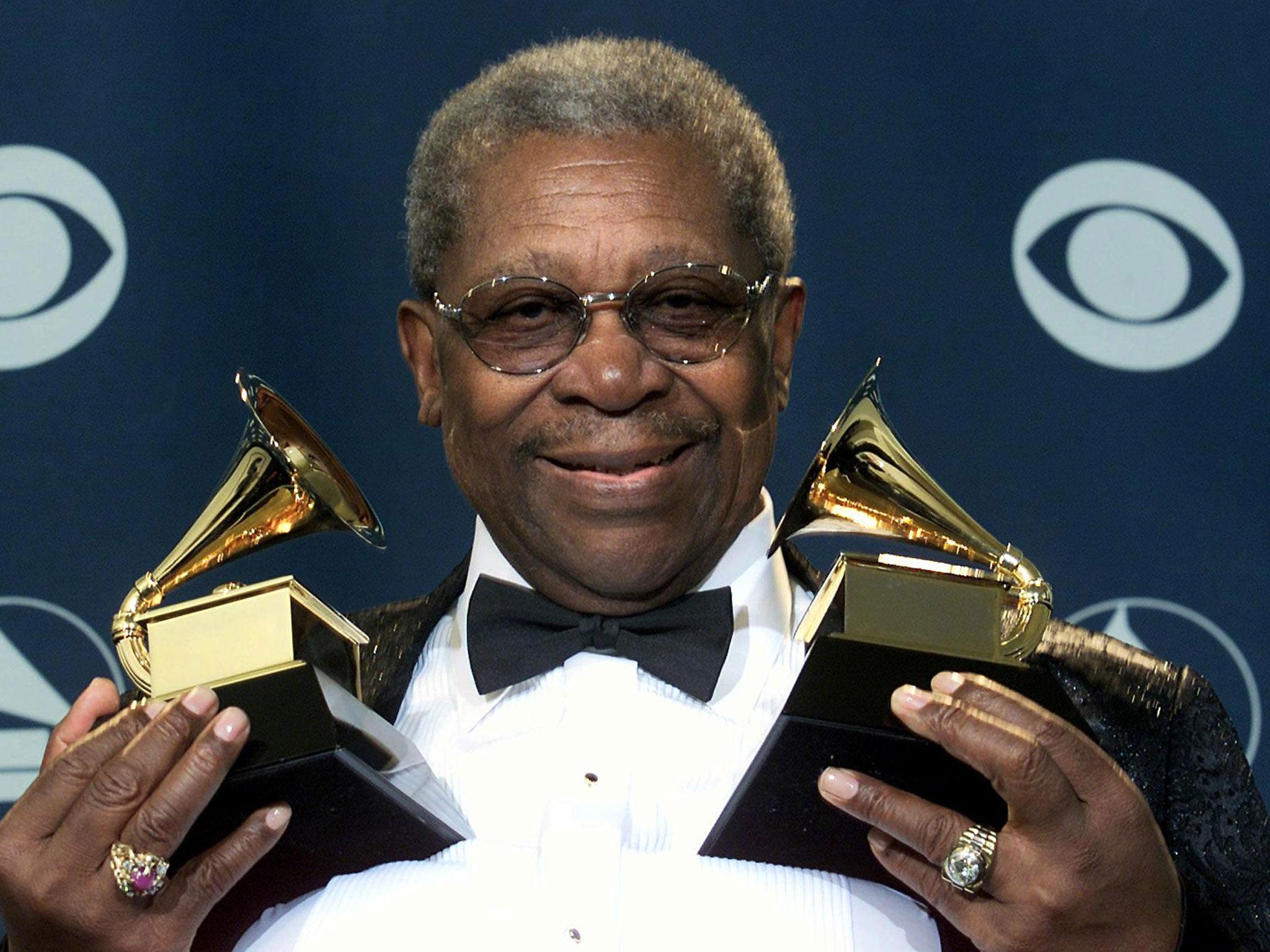BB King: Eight facts about the late blues guitar legend
The music hero died on Thursday - here's how to remember him

BB King sadly passed away after battling diabetes-related illness.
Ranked the third-greatest guitarist of all time, King has been described by critics as "synonymous with the blues".
From how he learned guitar and the tragedies he overcame, to the extent of his staggering success, here's what you need to know.
Radio
As a disc jockey on a Memphis, Tennessee, radio station, Riley B. King became known as "The Beale Street Blues Boy," which was shortened to "Blues Boy" and eventually to "B.B."
Lucille!
King was playing a dance in Twist, Arkansas, when two men began fighting over a woman and accidentally set the dance hall ablaze. King had to dash back in to save his guitar, which he began calling Lucille, the name of the woman who inspired the fight.
Teacher
King's primary guitar teacher was his cousin, bluesman Bukka White.
Accolades
In 2003 Rolling Stone magazine's list of the 100 greatest guitarists of all time ranked King as No. 3, behind only Jimi Hendrix and Duane Allman.
Gigs
In 1956 King and his band performed 342 one-night stands.
Genres
King greatly expanded his fan base to jazz, folk and rock audiences in 1967, playing at the Montreux Jazz Festival, the Newport Folk Festival and the Fillmore West in San Francisco.
Sadness
King's 10,000th show came on April 17, 2006, at his namesake nightclub in New York. He performed despite having buried his son, who died of cancer, the day before.
TV
King appeared on the television shows Sanford and Son, The Young and the Restless, The Cosby Show, Married ... With Children, The Fresh Prince of Bel-Air and Sesame Street.
Additional reporting by Reuters
Join our commenting forum
Join thought-provoking conversations, follow other Independent readers and see their replies
Comments
Bookmark popover
Removed from bookmarks